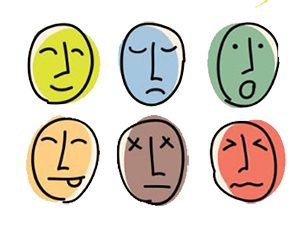You are in a trade, you have managed your settings prior to the entry, and everything seems to be running smoothly when all of a sudden the price starts plunging downward fast. The tension may be building up and you are now faced with two options to resolve this situation – you can either get involved and tweak the settings or stay put and refrain from making any changes. While the fear is usually quite real, there is only one correct answer to this challenge – do nothing.
Even though such manner of conduct may seem to be foolish on the outside, the implications of your actions at this crucial step will inevitably determine the future of your trading. Naturally, this may be easier said than done, maintaining the sense of discipline will turn out to be of vital importance for each trader’s forex career. In this article, you will be able to learn how not to sabotage your own trade and understand why most traders cannot surpass this hurdle.
You may be taking a course with a trading company or consulting with a professional trader with the hope of becoming better at forex, but in the end, no one can constantly be there to hold your hand. We all seek to accumulate as much information as possible and learn about the ways to acquire more pips; however, in order to be an excellent trader, you do need to be an independent one too. Any form of dependence is a prerequisite for failure, which is why the compulsion to make a move in some critical stages in a trade in an attempt to control it can also have disastrous consequences for your trading as a whole.
The First Step
In order to better yourself and overcome the issue of not finding support within, you firstly need to create a solid, functioning system, which will take over some responsibility off your back and save you from needing to get involved. Unfortunately, many assume that the only effort they need to make is to create a system that will direct the entry and exit points in each trade they enter, yet they easily forget that the whole idea behind creating a system is so you need not worry about these steps yourself. Therefore, once they finally manage to put together an effective system, many traders fail to practice consistency.
If you have already invested time into assembling your own system and you put effort into proper testing, you should know by now that it functions well. Any divergence from what you built is then only counterproductive and will lead to inconsistency and thus disappointment due to failure. This is, in actuality, a key moment where one needs to separate emotions from logic because your decision-making must not, under any circumstances, depend on your feelings.
Impact of Emotions
Emotions can always fluctuate and they are colored by our own prejudiced, biased perspective, whilst a system is a structure that is aimed at navigating through this $4—5 trillion/day market. The system is there to both support you and help you steer clear of letting your emotions get the best of you and your trading. In addition, if you allow yourself to recollect and go back in time mentally, you will probably be able to remember the unfortunate part your emotions had in some important decision-making processes. You may think of all the anger that caused the people you know to utter words that they regretted later in life or the choices they made to stay in bad relationships for too long for example both have to do with one mutual culprit – emotions. Whenever traders allow emotions to rule their critical thinking, they are in fact making themselves vulnerable to misjudgment, subjecting their trades to the impact of the fleeting nature of their feelings.
 The only way for any trader to truly feel in control of trading in this market is to make a clear distinction between their emotions and logical thinking. If we allow ourselves to enter and exit trades solely based on how we feel, we are then making vital money-related decisions grounded in our subjective idea of where the market is going to move. This sentiment-governed action is not based on any actual plan or structure, which is why a system is very much needed to bypass the dangers of our human nature. If you have developed and tested one, you have a tool that can certainly work and get you to where you wish to go, unlike this emotion-driven, reckless approach that will undeniably make all your fears come alive sooner or later.
The only way for any trader to truly feel in control of trading in this market is to make a clear distinction between their emotions and logical thinking. If we allow ourselves to enter and exit trades solely based on how we feel, we are then making vital money-related decisions grounded in our subjective idea of where the market is going to move. This sentiment-governed action is not based on any actual plan or structure, which is why a system is very much needed to bypass the dangers of our human nature. If you have developed and tested one, you have a tool that can certainly work and get you to where you wish to go, unlike this emotion-driven, reckless approach that will undeniably make all your fears come alive sooner or later.
Doctors cannot carry out surgeries based on what they at first glance believe will happen with the patient or refuse to conduct a proper examination giving in to anger because that patient offended them upon meeting. You will always find these healthcare workers take a look at the blood results and use special medical instruments to assess the situation, leaving their personal opinions behind. Whichever job involving a great deal of responsibility you can think of requires this approach to decision-making, and certainly no doctor, army general, or president will ever allow himself/herself to put the future of people or countries in the hands of a passing sensation.
Solution for Success
The proposition of action sounds quite simple – choose the one vehicle that will lead you to financial prosperity and leave the emotions out of the equation. Trading psychology is the very essence of trading that you will ever do and is responsible for the success acquired by professional traders too. While systems, algorithms, preferred tools, or charts may differ, the strong sense of what a “difficult” decision looks and feels like is something all experts share. No one can deny that a price spiraling downward brings up a negative feeling, but we can all agree that the only way traders can get to the exit with a smile on their faces is by ignoring that red alert button that is blinking from the inside.
![]() The battle is simply ever-present and we need to constantly remind ourselves what our purpose is, ensuring the conditions that help us offer our very best. Therefore, in order to go about this sensitive topic carefully and systematically, traders should think of the following steps: first, they should thoroughly develop their own system, which further implies that they should always know when you should enter or exit your trades; secondly, all traders should learn how to recognize the trade that can prove to be beneficial and execute it; last, traders must allow the market activities to envelop naturally without any interference, as it is a display of distrust in one’s own system and inevitably involves a higher degree of possibility to make things worse.
The battle is simply ever-present and we need to constantly remind ourselves what our purpose is, ensuring the conditions that help us offer our very best. Therefore, in order to go about this sensitive topic carefully and systematically, traders should think of the following steps: first, they should thoroughly develop their own system, which further implies that they should always know when you should enter or exit your trades; secondly, all traders should learn how to recognize the trade that can prove to be beneficial and execute it; last, traders must allow the market activities to envelop naturally without any interference, as it is a display of distrust in one’s own system and inevitably involves a higher degree of possibility to make things worse.
The last step is of immense importance especially if you turn out to be right because your success in trading should be largely predicted by the efficacy of the system you worked hard to develop. Therefore, if your subjective impression of the current market situation leads to the predicted outcome and you end up being right, it will only give you green light to pursue trading by feel. Such an approach will surely prove to be detrimental to your future as a forex trader largely because forex trading requires mathematical precision that is free of any bias or preconception. The event where the close of your last trade aligns with your fear may even arouse more fear of your system being greatly flawed and that all the work you invested before was all in vain, and this is a vicious circle that can only draw you in deeper and deeper.
If you are certain that you properly tested out your system, simplify all these steps in your mind and allow the events to unfold naturally. While a series of passing feelings of doubt and anxiety may come and go, the most important step is to refuse to listen and simply follow the process. The key here is to repeat the same steps each and every time, without giving in to the need to execute more control over the trade that is needed. Even if you feel tempted to step in and make adjustments, go back to this list and remind yourself of the ways in which you can help or endanger your trading.
Biggest Trading Mistakes
Naturally, all traders are prone to making mistakes and these can creep up in a rather subtle fashion. Nonetheless, this does not give any trader the right to evade the educational segment of trading, especially due to the assumption that the job is done once the system is set up. There are a few typical mistakes that many traders make because, in terms of involvement, they often forget that in forex trading less is more. What is more, many traders forget that, apart from the technical aspect and the required precision, the trading is carried out by humans which are simply imperfect beings susceptible to emotional reactions. A number of traders thus only invest in learning about the market and the tools, failing to recognize the impact of their own psychology.
Intraday trading is a perfect example of how traders easily sabotage their trades because they are pulled towards checking the progression of their trades, which leaves more room for doubt and makes them take action they would otherwise not consider. The best strategy in terms of trading applications and easy access to information is to completely ignore their existence and carry on as if they never existed. While this may seem like a silly idea, you are in fact allowing the market to perform the way it would naturally do on its own. By not looking at the apps and your trades, you are preventing yourself from meddling in and thus making huge mistakes. Professional traders around the world choose to trade just shortly before the close of the daily candle precisely because they understand their human weakness and the need to reduce the risk of doing something they could regret later.

If they have already made some mistakes or lost more than they planned to, traders also tend to overcompensate by trying to do more than they should. In such cases, traders find themselves trying hard to find trades that would bring their account to where it was prior to losing. This way, traders actually chase losses while unfortunately, more often than not, the whole dissatisfaction with one’s account slowly but surely lures the individual into sinking deeply and fast. The lesson here is that losses are an inevitable part of trading in this market, and, the sooner you learn how to deal with them, the better you will be at keeping your account. Money management is not about compensating for your losses but preventing them. Therefore, the more you try to go back and return what is lost, the greater the chance for amplifying the loss is.
An essential part of making mistakes such as the ones described above is panicking because traders are generally less likely to make an irrational decision willingly or consciously. Rather, traders are easily pushed into thinking that they better make a move because of the cold sweat going down their necks. This exact way many traders assume that taking money off the table once they start losing many pips is the best solution when, in fact, their accounts would most probably do much better without making this choice. Taking losses is an essential part of trading in the spot forex market and your task is to learn how to process the anxiety that stems from taking drawdown. Many a time, traders cut bait just because they start panicking and particularly as a result of looking at their traders more often than they should.
On the other end of the spectrum, we have another situation where traders find themselves entering a particularly satisfying trade that is generating a great number of pips. Now, after a 2.5% gain, these traders can start feeling markedly satisfied with this outstanding achievement that they end up not making the crucial decisions that would keep their account safe. At this point, they are probably looking at their accounts, hoping not to fall below their new totals, so they completely disregard their proven system and money management process that they would naturally use under different conditions. What this often means is that these traders would take everything off, admiring the great sum appearing in their accounts, when in fact they would fail to recognize the possibility of the trade moving much further than that. Many experts have shared their past experiences where they missed out on long trades because they feared to keep going once they earned a great amount of money.
Fearing risk can be a blessing in disguise as much as it can make your worst nightmare real. Therefore, just as we say that one swallow does not make a summer in terms of losses and your account being finished as a result, so we can move towards understanding that one big win cannot possibly imply that a trade is over. Instead of failing to earn a few additional hundreds of pips next time, learn to trust your system to tell you when to exit the trade. As you can exit too early while losing, you can do the same when winning, so the perfect solution for traders to stop doing anything prematurely is to simply allow the system to process information without micromanaging the trade or ignoring its signals. Traders must not, under any circumstances, deviate from their tested, proven systems and accept the imperfection of the human mind.
Last but not least, among the greatest mistakes made in trading, forex traders increasingly fail because they simply do not understand the concept of playing the long game. Unlike other mistakes listed above, this one implies more of a process than a single mistake one can make in one second. What this essentially means is that earning an impressive percentage of the money you started out with should not make you feel entitled to winning. Many traders often earn great amounts of money quickly, increasing their total unbelievably fast, only to go back where they were in the beginning even more quickly. At this point, after feeling so proud of yourself and after putting so much effort into trading, you end up losing everything you earned, feeling completely shattered. This is such a sensitive spot for many traders because they are incredibly prone to acting impulsively at this stage and the least sensible and rational decisions are made precisely when one starts losing.

The point after losing is the moment where even good traders need to keep their eyes open and control themselves so as not to let their emotions lead the way. While also common among experts, this issue can be tackled easily just by understanding the relevance of the data you get after a 12-month period. If you have completed the testing process and you are done with demo trading, you should feel pressured to experience wins constantly. Just like currency pairs, our trading accounts naturally oscillate up and down and this is an innate part of the forex market. Even if your account goes down more than you expected, you should aim to stay on the course, understanding the decline as a natural fluctuation. The main idea that you should constantly remind yourself of is that you are playing the long game which requires that you keep the same course as before, maintain a sense of direction despite the passing losses.
The top traders are precisely the traders who can maintain a clear picture of their goals regardless of the short-term losses. The best traders are those who know how not to quit or sabotage their trades by making rash decisions. These are the key points that will either place you among the losing majority or the winning minority. Even if you find yourself slipping in the unwanted direction, you can always consciously choose to correct yourself and return to the course you wish to follow. The winners are also those individuals who know how to recognize and accept that they have slipped because this is the mentality that will propel you, as well as every other trader, towards success.
Actual Steps to Take

If you are a self-aware trader who understands his/her shortcomings, you are also probably the type of person who is ready to invest in psychological growth. As we have come to witness in this article and in real life too, sabotaging one’s trades often has to do more with discipline than any other aspect of trading, which is why reading useful material on this topic has proved to be extremely beneficial for a great number of traders. Discipline Equals Freedom by Jocko Williks, for example, is an essential read that has helped numerous traders get out of the slump of succumbing to their habits and impulses which often prove to be fairly unhealthy and unproductive. While many people assume that self-help books are light reads that are meant to make you forget your troubles, mindset books such as the one mentioned above are vital educational materials that will surely change your life for the better and thus your trading as well.
If you wish to be proactive and are at the beginning of your trading career, make sure that you leave enough time to set up and test out your system. The internet and various social media outlets provide numerous resources that will help you start devising your own system. Start applying the advice shared online and, most importantly, choose to give yourself the chance to demo test everything you learn before you actually invest your own money. The desire to make money is what we all share, but do not let it get the best of you if you are looking forward to achieving and maintaining sustainable, long-term success in the spot forex market.
Another important piece of advice to consider is to make yourself aware of your own criteria because you will eventually need to make decisions based on your needs and standards. If you have a list of indicators that you need to use to get a green light to enter a trade, you should not by any means ignore your system and try to take a shorter path. Exercise discipline in every aspect of your trade and do not let yourself sabotage your success just because you are eager to earn more money. Wait for all of your indicators to tell you to proceed and, once you enter a trade, let it run its course naturally. Refrain from giving yourself the chance to check the trades you are in and possibly interfere, whilst nurturing a sense of trust in your system.
Lastly, do not allow yourself to be triggered by passing losses, understanding that your only point of reference should be the number you get upon the completion of a 12-month period. These steps may certainly turn out to be slightly more difficult to follow in real life, yet they are absolutely vital if you are a committed and self-aware trader who wishes to evade the common, repetitive mistakes that make many forex enthusiasts sabotage their trading.





